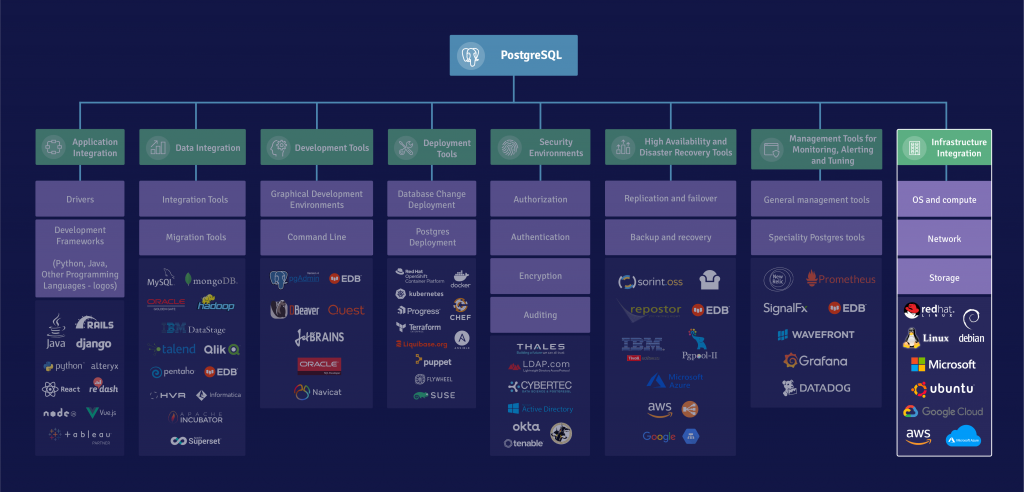To conclude our Integrating PostgreSQL blog series, we'll further explore PostgreSQL integration to help enterprises do more and go faster.
This blog post will highlight the final area of importance: Infrastructure Integration.

PostgreSQL runs on a wide range of operating systems and hardware architectures. However, the Linux/X86 platform is by far the most popular. We estimate more than 90% of all production PostgreSQL databases in enterprises run on Linux. RedHat Enterprise Linux has the largest share, followed by Debian and Ubuntu. The percentage of Windows-based production deployments has been decreasing rapidly over the last 10 years.
Container-based deployments are increasingly getting attention, especially since Kubernetes has emerged as the top choice for container orchestration.
On the storage side, PostgreSQL leverages the operating system for disk access; it does not use direct I/O. This means that PostgreSQL greatly benefits from fast, predictable, and reliable storage access. Direct Attached Storage (DAS) and Fibre-Channel-based Storage Area Networks (SAN) are the preferred tools on premises for the data directory and the write ahead log. Backups can be stored on NFS mounts. In the cloud, SSDs with high I/O rates are highly recommended. Click here for a detailed discussion of storage options and RAID configurations.
PostgreSQL leverages the operating system for caching and disk access, which means a PostgreSQL tuning strategy must include key operating system settings. For an extensive description of the tuning options on Linux, click here, and for Windows, click here.
PostgreSQL has emerged as the top database platform that best enables users to get the most out of their tech
stacks, get to market faster, and integrate easier into the enterprise environment.
Thanks for following along in this series! Want more? Check out our infographic to see the bigger picture in regard to PostgreSQL integration.
